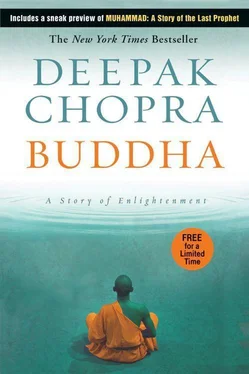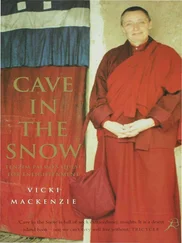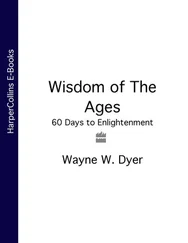Buddha replied, “Every single life is woven into the web of karma, which has no beginning or end. Until you accept that every life is woven into every other, you will never know who you really are.”
“So Channa must surrender to death today?” asked Kondana.
“Death is not the point,” said Buddha. “As long as you are caught in karma’s web, death comes with birth. The two are inseparable. Find the part of you that is unborn; then you will be free of birth and death together.”
As he taught them, Buddha was heading back to the royal tent. Devadatta was tied to a stake, and a hooded man began to whip him. By his side was a broad scimitar lying on the ground. Buddha looked away and walked into the tent. Suddhodana stood over the cot where Channa lay, barely breathing.
“I sent orders for a physician,” Suddhodana said mournfully. “But it should have been for a priest.”
Buddha knelt beside the cot. “What can I do for you, dear Channa?”
His words seemed to make the dying man revive. He opened his eyes slightly, the lids fluttering. Instead of looking at Buddha, Channa pinned Suddhodana with a bitter glance. “Your pride has killed me,” he muttered. His words were clotted, and a trickle of blood appeared on his lips.
“Look at me, not at him,” said Buddha gently.
“I can’t. I’ve sinned against you.”
“Why do you talk of sin? Do you think you’re going to die?” asked Buddha. His voice was so calm and tender that Channa stared at him. “I’ve come to show you the one who was never born and therefore cannot die.”
Buddha closed Channa’s eyes. No one in the tent ever found out what he made Channa see, but the vision created a smile of deep bliss on Channa’s face. He gave a muffled, ecstatic cry, then his head fell back on the pillow. His stillness would have been mistaken for death except for the slight rise and fall of his chest.
“How can he survive such a wound?” asked Assaji.
“That’s the one advantage of dreaming,” said Buddha. “You can’t be killed unless you want to be. Let him decide. It’s no one’s dream but Channa’s. He will do what he will do.”
Buddha gathered Suddhodana, who was so overwhelmed by the day’s events that he was on the verge of collapse, and the others and led them all outside. The old man allowed himself to be half carried on Buddha’s shoulder, but he stiffened with rage when he beheld Devadatta, who had been whipped so severely that he was unconscious. The king was about to order that the traitor be revived so that he could witness his own execution. Then he noticed something. Everyone present was bowing on one knee to Buddha or prostrating themselves on the ground.
“Why is this?” Suddhodana asked.
“Let me show you,” said Buddha. “In your heart you want to kill Devadatta, even after he is helpless and defeated.” The old king hung his head slightly but didn’t deny it. Buddha said, “One who kills a killer takes on his karma, and so the wheel of suffering never stops. Let it stop here, today, for you.” His father trembled, nodding almost imperceptibly. “I will show you how to make this a kingdom of peace,” said Buddha.
No one saw him do anything unusual, but it was as if the clouds passed away from the face of the sun. The mood of war lifted; the atmosphere became calm and pure.
As they looked around, the Sakyan soldiers seemed not to recognize where they were. Many stared at their weapons as if they had never seen these strange implements.
Buddha leaned closer to Assaji. “I begin this new age so that you can continue it forever. Remember that.”
Devadatta was cut loose and his unconscious body carried away. He woke up that night in his bed at the palace. His room was sealed and guarded for three days while he contemplated what had happened to him. At first he simply felt hollow and numb. Being dedicated to evil had supplied him with a ferocious energy that he couldn’t summon back. On the night of the third day, he tried the handle and found the door to his room open. Cautiously, Devadatta looked up and down the corridor, which was empty. Noises came from the great hall, and after considering whether to run, he felt an impulse to go toward the sound. His whipping at the stake had been so severe that it befuddled his memory, and Devadatta wasn’t even sure how the battle had ended or who was king.
No one saw him lingering at the entrance of the hall. There was a great celebration under way. The entire court sat at table while servants rushed back and forth with platters of meat and saffron rice, ripe mangoes and honeyed berries. Suddhodana presided at the head. To one side at a lower table the five monks were eating rice and lentils with Buddha. The room was filled with a quiet joy that the palace had not seen in years.
Devadatta paused, examining the festivities, then turned and left.
“Did you see that?” asked Assaji, who was on Buddha’s right hand.
“Yes.”
“He was your sworn enemy, and now you’re letting him leave?”
“Devadatta is the one person in the world who could never leave me,” said Buddha. “That’s his blessing, but he saw it as a curse. He’s tied to me by a rope he can never let go of.”
“Then he’ll be back?” asked Assaji, not relishing the thought.
“What choice does he have?” said Buddha. “When you’re obsessed with hatred for someone, it’s inevitable that you will return one day as his disciple.”
“Master, I just hope he’s better when he comes back,” Assaji said doubtfully.
“He will still be arrogant and proud,” said Buddha. “But it won’t matter. The fire of passion burns out eventually. Then you dig through the ashes and discover a gem. You pick it up; you look at it with disbelief. The gem was inside you all the time. It is yours to keep forever. It is buddha.”
For a storyteller, it would be ideal if Buddha’s life came to a spectacular end. We’re holding our breath for it. First came the fairy-tale beginning as a handsome prince, then a second act with a wandering monk who goes through all manner of trials and suffering, reaching a brilliant climax when enlightenment is achieved in a single night under the bodhi tree. Where did this stunning life finally wind up?
Squarely back on earth, as it turns out. Buddha lived quietly for another forty-five years, traveling throughout northern India as a renowned teacher before dying at the ripe old age of eighty. The cause of death was eating a bad piece of pork, an embarrassingly humble and mundane way to depart.
To satisfy our dramatic longings, we have to turn to the incidental characters in the tale. The ones who were intimates of Siddhartha enjoyed a warm reunion with him. His wife, Yashodhara, and son, Rahula, became devotees of Buddha, which seems fitting enough. They were revered to the end of their days. Other characters had a more curious fate. The ever-widening circle of monks around Buddha, known as the Sangha, came to include two misfits, his archenemy, Devadatta, and the rough-hewn warrior Channa. According to tradition, Devadatta remained proud and resentful; even as a disciple he caused trouble. In one famous episode Devadatta tries to kill Buddha by starting a rockslide; in another he gets an elephant drunk on liquor and sends it on a rampage against the Compassionate One. (Buddha deflects the danger in both cases.) As often happens, the villain of the piece is too much fun to let go, so there are other stories of political intrigue with a neighboring prince named Ajatashatru and more mundane tales of Devadatta objecting to the rules Buddha laid down for his monks. A storyteller has a hard time making much drama out of ashram politics.
Following the rules didn’t sit well with Channa, either. Having given up his role as brave charioteer, Channa chafed at being reduced to the status of a holy monk. His chief sin was pride. He never let anyone forget that he had been Siddhartha’s best friend. He treated Buddha with too much familiarity, causing distress among the other devotees. At a certain point Channa’s misbehavior became too much for even Buddha’s tolerance. The head disciple, Ananda, who historically was Buddha’s cousin, was sent to reprimand him, and from there the road divides. In one version Channa sullenly takes his scolding and reforms. In the other, he sinks into despair and commits suicide.
Читать дальше












